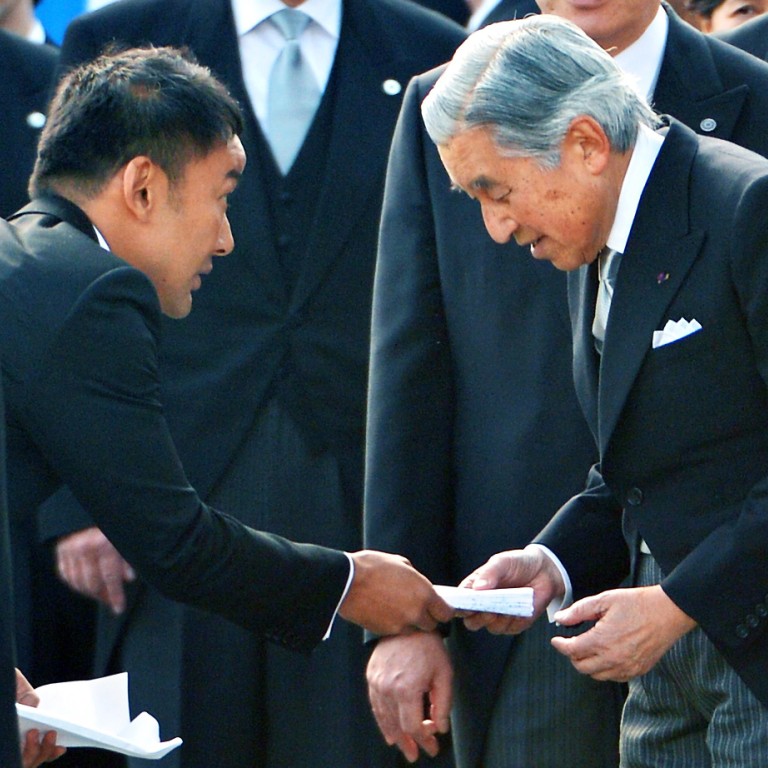
Bumbling Japanese politicians anger even the most jaded voters
One invites imperial intervention, another tries unauthorised diplomacy in North Korea, while a third hits problems over campaign irregularities
Politicians the world over have a reputation as a shifty bunch, but the recent impropriety and ill-judgment displayed by three Japanese lawmakers have caught the attention of even the most jaded voters.
Taro Yamamoto got the ball rolling by trampling across royal protocol at a garden party hosted by the emperor on October 31.
He was not elected for his competence, but because he is ‘cool’
A staunch anti-nuclear activist and independent politician, Yamamoto gave the emperor a handwritten letter informing the monarch of health problems experienced by children who lived close to the Fukushima nuclear plant.
Conservative politicians quickly lined up to condemn Yamamoto for his temerity and for attempting to drag the emperor into politics, while the upper house of the Diet voted this week to ban him from attending future ceremonies involving the imperial family.
Most Japanese were also critical of Yamamoto's actions, viewed as an outrageous breach of protocol, but foreign commentators on websites have been more supportive, pointing out that the government seemed to be far more horrified that someone had approached the emperor than at the bumbling incompetence that has been the hallmark of efforts to deal with the Fukushima crisis.
He has even received a death threat: a menacing letter, discovered by security officers at a Tokyo building filled with lawmakers' offices, warning that "a group of assassins will be dispatched shortly", public broadcaster NHK said yesterday. Inside the envelope was a clasp knife with a 9cm blade.
Next to incur the wrath of the Diet was Antonio Inoki, who embarked on a six-day trip to North Korea without securing the chamber's permission.
Accused of "disrupting the order of the house" after his November 7 return, Inoki told reporters that he would accept any punishment "seriously".
Inoki, a 70-year-old former professional wrestler, is a member of the opposition Japan Restoration Party and has expressed the view that peace can be brought to northeast Asia through sporting exchanges.
During his visit, Inoki opened an office in North Korea for his non-profit organisation to promote cross-border sporting events and held talks with senior government officials.
"Inoki is a political gadfly who keeps being elected because he was a famous wrestler rather than being a good politician," said Steven Reed, a professor at Chuo University who specialises in Japanese political parties and elections. "Part of his attraction to the public is that he refuses to play by the political rules."
Reed is similarly dismissive of Yamamoto, who was previously an actor. "He was not elected for his competence, but because of his fame and because he is 'cool'," he said.
The third fall from grace was the most dramatic and significant, Reed suggested.
Six people close to Liberal Democrat Takeshi Tokuda were arrested on Tuesday on suspicion of illegally paying people who worked on Tokuda's campaign to win a seat in the lower house in December's election. The six included two of Tokuda's sisters. The 42-year-old immediately tendered his resignation from the party.
Rumours of shady deals in the Kagoshima No2 constituency have emerged in the media in recent months and have put a sudden end to Tokuda's rise within the ruling LDP.
And while Yamamoto and Inoki seem likely to serve their punishments and return to the political arena, Tokuda is finding that friends and allies have melted away, says Reed.
Additional reporting by Agence France-Presse

